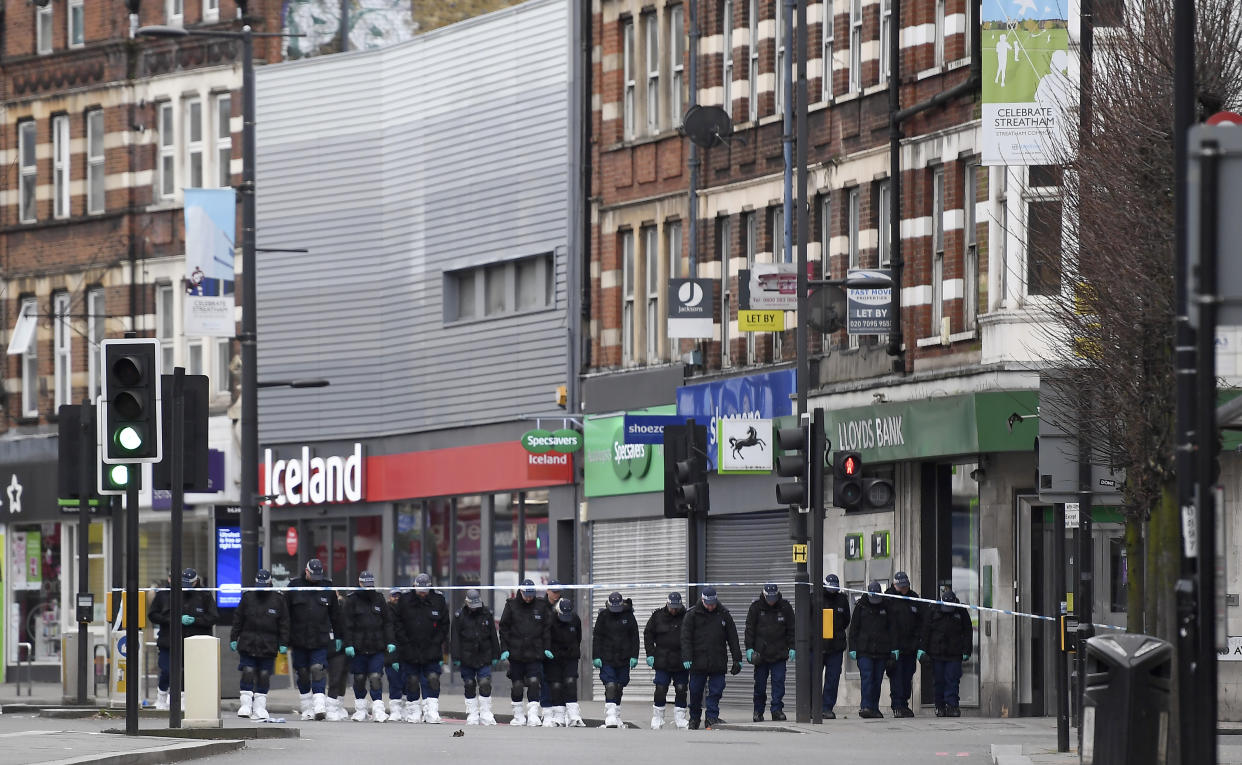Here are the key points of Number 10's emergency legislation to stop terrorists being automatically released

Justice secretary Robert Buckland has announced the government will introduce emergency legislation to stop terrorists being automatically released from prison halfway through their sentences.
It comes after the terror attack in Streatham, south London, on Sunday. Sudesh Amman, who was released from prison just 11 days earlier, knifed a man and a woman before he was shot dead by police. The victims’ injuries are not life-threatening.
Speaking in the Commons on Monday evening, Mr Buckland said the government would be introducing the emergency bill to “neutralise” the threat of terrorists coming out of prison.
This will be in addition to its planned counter-terrorism bill, which was announced in the wake of the London Bridge attack in November last year.
Here is everything you need to know about the emergency legislation announced by Mr Buckland.
What are the key points?
No terrorist offender would be released automatically at the halfway point of their sentence without “check or review”
Any release before the end of a sentence would be dependent on a risk assessment
The earliest point at which offenders would be considered for release is two-thirds through the sentence
No terrorist offender would be released before the end of their custodial term unless the parole board agrees they are no longer a risk to the public
The legislation would apply to serving as well as future prisoners
When will it be introduced?
Mr Buckland didn’t give a date. He only said “as soon as possible”.
What processes does it have to go through?
A bill has to get through 11 parliamentary hoops in order to gain royal assent and become law.
Given the government’s large majority and the fact the bill will be popular with large segments of the public, it is likely to pass quickly.
What was Amman jailed for?
In December 2018, he was sentenced to three years and four months for possessing and distributing terrorist documents. He was freed on 23 January.
Before him, London Bridge attacker Usman Khan was sentenced to 16 years in 2012 over a plot to bomb the London Stock Exchange.
He was released in 2018, before he fatally stabbed Saskia Jones and Jack Merritt at Fishmongers’ Hall on 29 November last year.

What is in the counter-terrorism bill?
Announced on 21 January, the Home Office said it will include plans for tougher sentences, an end to early releases and increased monitoring of terror offenders.
The bill, which the government said would become law by 21 March at the latest, would force the most “dangerous offenders” who receive extended sentences to serve the whole period behind bars.
Anyone convicted of serious offences, such as preparing acts of terrorism, would also have to spend a minimum of 14 years in prison.
Other aspects include doubling the number of specialist counter-terrorism officers and increasing the number of hostel places to monitor convicted terrorists once they are released.
Why wasn’t the early release legislation introduced earlier?
That’s what mayor of London Sadiq Khan was asking on Monday morning.
Mr Khan said he was “angry” at the “lack of progress” made by the government in its pledge to change anti-terror laws in the wake of the London Bridge attack.
Mr Buckland said on Monday: “Yesterday’s appalling incident makes the case plainly for immediate action.”
What has Boris Johnson had to say about it?
At a press conference on Monday, the prime minister said early release “has come to the end of its useful life”.
He said: “We’ve invested massively in CT [counter-terrorism] and de-radicalisation. The sad thing is, it seems to be [that] mentally and emotionally for these men – and it’s almost always men – it’s a very tough nut to crack.
“De-radicalising people is a very difficult thing to do. It just seems to be a psychological barrier that people find hard to get back over. That’s why I stress the importance of the custodial option and that’s why I’ve come to the end of my patience with the idea of automatic early release.
“I hope people will understand why we are doing that. This is a liberal country, a tolerant country, but I think the idea for automatic early release for people who obviously continue to pose a threat to the public has come to the end of its useful life.”
Watch the latest videos from Yahoo UK
